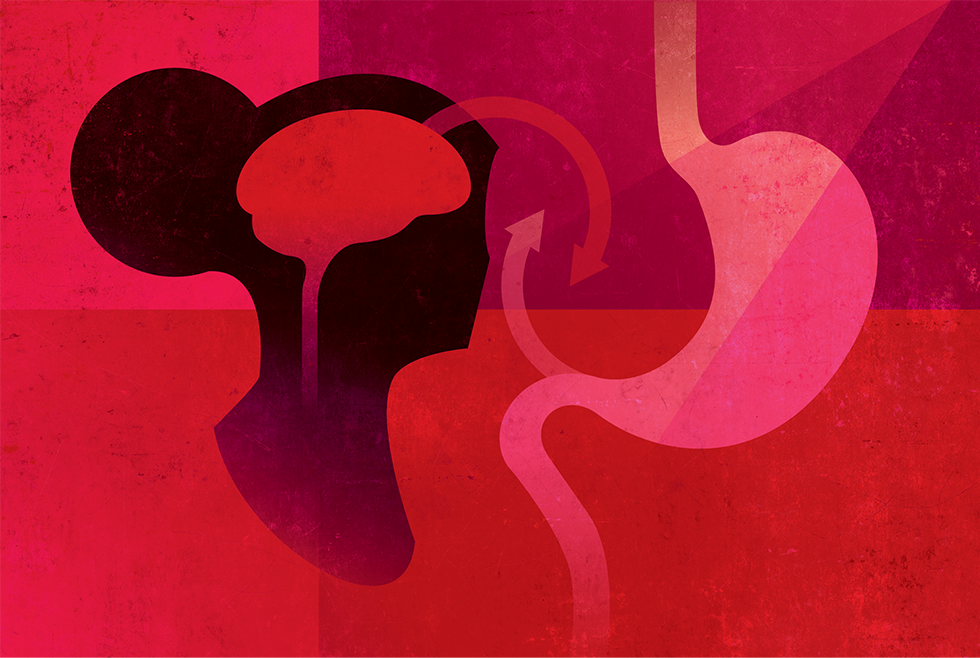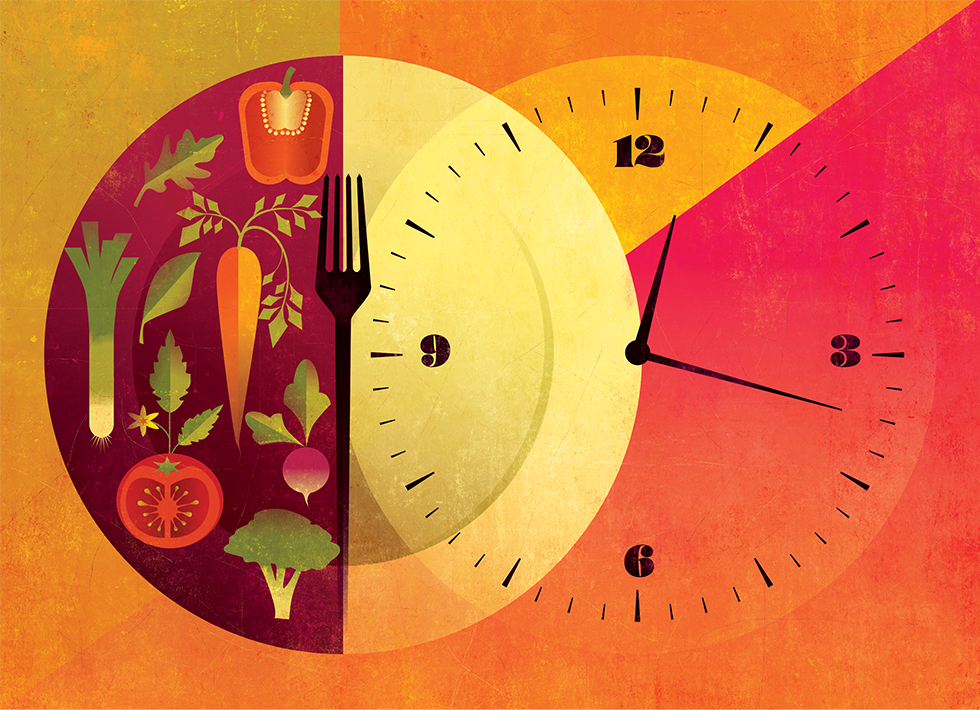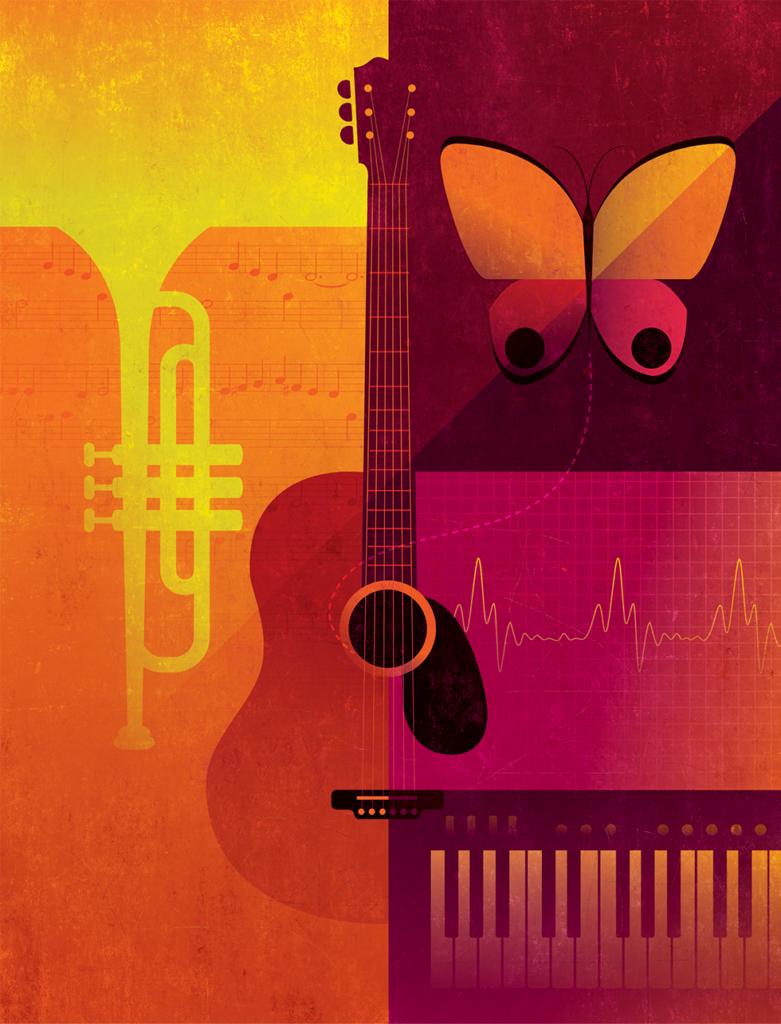
Unlocking longevity: How shifting your mindset can improve your health and extend your life
After turning 65, the average American enjoys just one additional year of life without significant health issues, according to the World Health Organization. But it doesn’t have to be that way. Adopting the right health behaviors is crucial for extending our years of good health, but sticking with them isn’t always easy — especially when they require significant effort.
Daphna Oyserman, Dean’s Professor of Psychology and co-director of the USC Dornsife Mind and Society Center, is an expert on the psychology behind decision-making. Her research on identity-based motivation sheds light on what drives our decisions and offers some important tips on how to make the best choices for our health and well-being.
According to Oyserman, one important factor influencing our decision-making or habit-forming processes is whether it feels easy or difficult to imagine ourselves doing the action in question. “When it feels challenging, we might quickly conclude it’s not for us,” she says. “This mindset leads to a self-defeating prophecy: We fear we will fail and thus opt to not waste time trying. As a result, we invest less effort or shift to something else.”
Oyserman argues that rethinking our response to difficulty is essential. “Many important, valuable things are hard to execute. Shifting our mindset to view challenges as a natural and essential part of achieving valuable goals makes it more likely we’ll embrace them. Think about it as ‘no pain, no gain.’”
Applying this principle to health behaviors, which often demand consistency and repetition, makes it easier to commit to habits that foster well-being. Recognizing that it’s inherently difficult to maintain such habits for their long-term benefits can motivate us to stick with them and improve our quality of life. “If each habit feels hard and I tell myself, ‘It’s not for me; I don’t want to waste my time,’ I’m simply going to be much less likely to do healthy things,” Oyserman says.
The alternative is to consider that important things in your life — such as healthy behaviors that will increase longevity and well-being — are actually worth engaging in.
The implications of this mindset extend beyond the present, highlighting the importance of establishing good habits early in life. Research suggests it’s beneficial to start as soon as possible, particularly during the pivotal years of adolescence.
Oyserman’s research extends into middle-school classrooms, where she examines the effects of identity-based motivation on eighth-grade students. Through a six-week program, students engage in activities designed to internalize the “no pain, no gain” concept. The outcome? These students tend to outperform their peers academically, show increased engagement with their schoolwork and, notably, exhibit fewer symptoms of depression.
In adults, Oyserman’s research on self-perception — including self-efficacy, self-esteem and self-compassion — reveals that individuals who view difficulties as impossible obstacles generally experience lower levels of these traits. Conversely, those who see challenges as opportunities for growth report higher levels in all three areas.
Yet, Oyserman points out, both perceptions can play a positive role in our decisions relating to health and well-being. Her findings suggest that maintaining flexibility is key. “What really matters is the ability to recognize when to step away and when to invest more effort,” she says. “This adaptability can be the deciding factor in both our happiness and health. Sometimes walking away preserves or increases well-being, while at other times, the answer is to roll up your sleeves and dig deeper.”

Gut reaction
A long life is best enjoyed with a healthy brain. A growing body of evidence suggests the key to that may lie in our gut.
Our stomachs are teeming with trillions of bacteria that are not only essential for digesting food but also communicate with the brain via the vagus nerve, which connects the large intestine to our brain stem. Research shows this connection to have such a great influence on our mental state that our dietary choices can strongly affect our moods, stress levels and even memory. The relationship is so intertwined that scientists have dubbed the stomach our “second mind.”
This symbiotic relationship between the brain and the gut has been crucial throughout human evolution. “For our early ancestors, remembering events and details related to eating supported their survival, guiding foraging and consumption behavior,” says Scott Kanoski, a professor of biological sciences who studies the link between diet and brain function.
Because of this close relationship, our eating patterns have an outsized impact on our cognitive functioning. Kanoski’s recent study involving rats revealed that the consumption of either sugary beverages or artificially sweetened drinks during adolescence could impair memory in later life. These findings suggest that making simple changes, like swapping soda for still or sparkling water might be a good first step to preserving cognitive function over time.
Determining the best diet for brain health can be confusing, considering the plethora of conflicting dietary advice. In fact, when it comes to foods to boost brain function and memory, the evidence is more definitive about what to avoid.
To keep our minds firing on all cylinders, Kanoski recommends we swap the refined carbohydrates contained in white bread for whole grains, minimize consumption of saturated fats such as those found in fried foods, and avoid ultra-processed foods like chips and hot dogs.
5 Ways to Give Yourself a Boost
Enhance your well-being with these popular self-care practices from around the world.


Fast-track to health
We’re accustomed to turning to scientists and health care practitioners for health advice, but could religion have some ancient wisdom to offer about longevity?
Fasting is an integral part of many faiths. Muslims abstain from food and drink between sunup and sundown during Ramadan. Lent marks a period of regular fasting for Christians.
“Fasting has been recognized in Buddhism since its inception, not only for its physical health benefits but also for awakening the mind to nirvana or cosmic consciousness — a state of bliss,” says Thomas Ward, professor (teaching) of anthropology and an expert on Tibetan Bön Buddhism.
These spiritual practices align more closely with scientific recommendations than some might expect. Research by Valter Longo, professor of gerontology and author of The Longevity Diet, has found that fasting might actually help to extend our lifespan.
The good news is that you don’t have to abstain completely from food to get the benefits. In Longo’s program, patients eat their regular diet each month except for five consecutive days when they follow a reduced-calorie meal plan high in plant-based complex carbohydrates, healthy fats and protein.
Longo’s studies suggest that this “fasting-mimicking diet” shows promise to positively impact our health.
“Keck Medicine of USC and many other hospitals around the globe have completed a number of trials indicating that repeating this diet over at least three cycles reduces biological age as well as blood markers for aging and cardiovascular disease,” says Longo.
“It also shows potential for reversing both late-stage type 2 diabetes and for increasing overall survival in triple-negative breast cancer patients.”
Religion may have more helpful advice to offer on how to improve health and well-being. Buddhists and Hindus have practiced meditation for thousands of years. Researchers are now finding that this form of mindfulness lowers levels of chronic stress and could even slow cellular aging, although further studies are needed.
Which Health Hacks Are Worthwhile
The world is awash with health tips, but which ones are worth following? Our experts weigh in.

One is the loneliest number
A long and healthy life may require a little help from our friends. That can be challenging. In 2023, the U.S. Surgeon General referred to a “loneliness epidemic.” Even before the COVID-19 pandemic, nearly one in two Americans reported significant feelings of loneliness.
The condition has serious implications for public health: Prolonged social isolation is associated with an increased risk of stroke, diabetes, cardiovascular disease, dementia and premature death.
A new study by Morgan Lynch, a doctoral student in psychology, discovered that the loneliest older adults exhibited poorer cognitive function and accelerated signs of aging. While it’s still unclear whether perceived social isolation directly contributes to the development of dementia or if individuals with cognitive decline find it harder to socialize, there is a genetic link to loneliness, as there is to dementia. However, Lynch notes, it’s not all up to fate. “While we can’t change our genetics, we can mitigate about 50% to 60% of our risk for loneliness and dementia through lifestyle choices,” she says.
But making social connections is increasingly challenging. Declining interest in traditional pillars of community, such as marriage and religious gatherings, coupled with our skyrocketing propensity to spend time online, has contributed to a record number of Americans living alone and having few close friends.
USC’s Director of Belonging Cat Moore ’05 is an expert in helping others find community. Her advice for the lonely? Start by creating a “belonging map” to identify where in your routine you regularly see others. This can offer opportunities for building connections, both large and small. Next, take a coworker out for coffee, chat with a neighbor or exchange hellos with your bus driver.
“The best strategy to keep connected long-term,” Moore says, “is becoming someone who creates belonging wherever they go.”

Tuning In to Well-Being
Music might be one antidote to our increasingly isolated world.

“In an evolutionary sense, we’ve been sitting around fires, playing music and singing for a very long time,” says Assal Habibi, head of the Brain & Music Lab at USC Dornsife’s Brain and Creativity Institute. “It’s one of the basic elements of our health and well-being.”
Habibi, associate professor (research) of psychology, studies how musical engagement affects the well-being of people of all ages. Her research spans the developmental effects of music practice in children to its influence on alleviating loneliness and enhancing memory in older adults.
“My research shows that access to high quality music education is significant for students to flourish and to learn social-emotional skills such as compassion, empathy, perspective taking and agency,” she says.
Habibi is particularly interested in how musical instruction can improve children’s emotional self-regulation — a skill linked not only to academic success but also to long-term mental health and addiction prevention.
For older adults, even those with no previous music training, Habibi’s work uncovers the transformative power of music. Her findings indicate that seniors who learn how to sing in a choir experience improvement in vitality, anxiety levels, social connectedness and loneliness.
“Study participants, even those in their 70s and 80s who were initially reluctant to sing, found so much joy and social reward when they engaged with familiar songs and synchronized with others in the choir,” she recounts. “Their shyness and cultural inhibitions disappear.”
Additionally, Habibi’s research suggests that sustained music training can counteract difficulties in discerning speech in noisy environments such as restaurants or family gatherings — a problem that often leads to social withdrawal and loneliness in older adults.
The cognitive and memory benefits of music are significant, as Habibi’s team has discovered. Listening to nostalgic music can help seniors reconnect with their personal histories. This has proved especially therapeutic for those with dementia and mild cognitive impairment by easing the associated anxiety, agitation and depression.
But the benefits of musical activity, particularly in community settings, such as a choir or an orchestra, extend beyond personal enjoyment or therapeutic effects; musical activity fosters community and connection, which are essential throughout our lives.
And it isn’t necessary to become a performer or a conservatory-trained musician to reap the rewards. “I always say, ‘Everyone can sing. Today is the right day to pick up an instrument and learn to play, sing with your family and sign up to join a choir,’” says Habibi.
“It’s not too late.”
